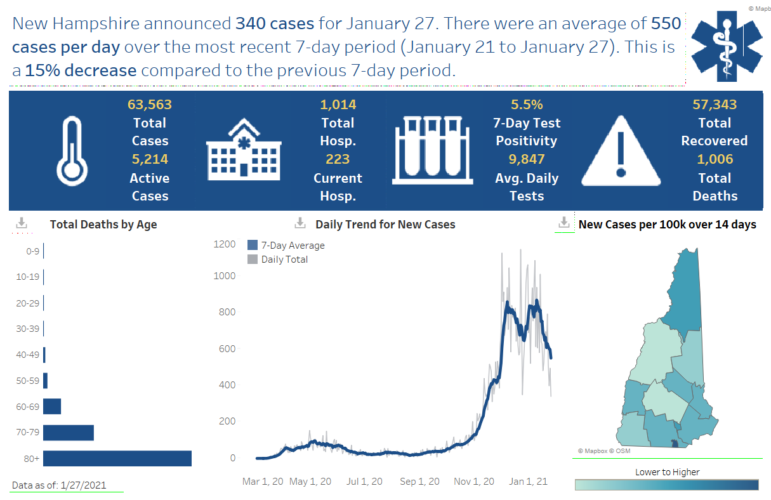
WASHINGTON – On Wednesday, the three members of Congress representing Manchester offered their thoughts as New Hampshire saw its 1,000th death related to COVID-19, with the number of deaths rising to 1,006 by the end of the day.
Congressman Chris Pappas (D-NH), offered his condolences and urged his colleagues in Washington to pass bipartisan legislation that would provide additional support for our health care system, municipalities, small businesses, and families.
“Today we passed another tragic milestone in New Hampshire,” said Pappas. “I join all Granite Staters in mourning the passing of 1,006 of our family members, friends, and neighbors from COVID-19. The holes left behind in our communities by each of these individuals is profound.”
Similar sentiments were issued from New Hampshire’s two U.S. Senators, Maggie Hassan and Jeanne Shaheen.
“I am heartbroken by the more than 1,000 COVID-19 deaths that we have seen in our state. The virus has taken too many too soon, and my prayers are with every Granite Stater who has lost a loved one,” said Hassan. “To all who are struggling right now, whether because you have lost a family member, are newly unemployed, or are facing mental health challenges brought on or exacerbated by the pandemic – please know that you are not alone. As we mourn together as a state, I urge all Granite Staters to continue to support one another, and, even as vaccines become more available, remember that it is still critical that we wear masks and practice social distances to prevent the spread of the virus and save lives.”
“One thousand lives have been taken by this virus in New Hampshire. That’s so much more than a statistic – one thousand families are missing someone around the dinner table tonight,” said Shaheen. “Any loss is tragic, but loss of this magnitude is gutting. My thoughts are with all those grieving the lives of their loved ones taken too soon and with those who are fighting to recover from this virus. There is a bipartisan urgency in Congress to deliver the assistance our communities need to address the pandemic head on by prioritizing vaccine distribution, testing and personal protective equipment for those on the frontlines, and to respond to the long-term needs that families, small businesses and our workforce need to survive the duration of this health and economic crisis. Negotiations in Congress continue and we’ve also met with the White House about finding a path forward on economic relief as swiftly as possible. Families and frontline workers can’t wait much longer, nor should they have to.”







